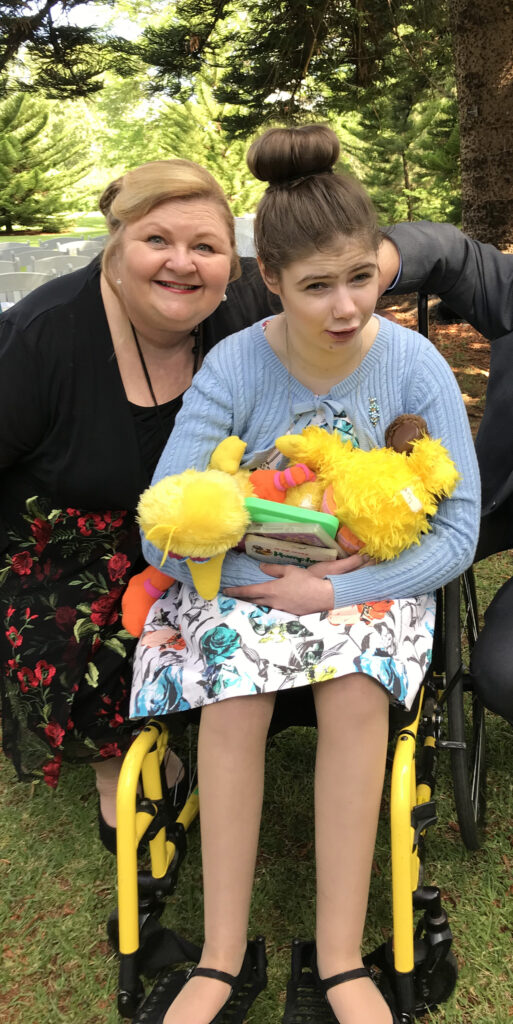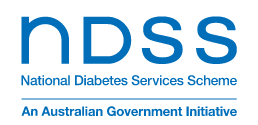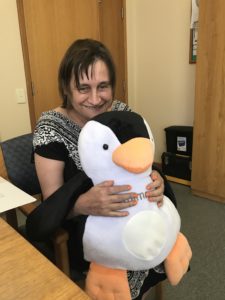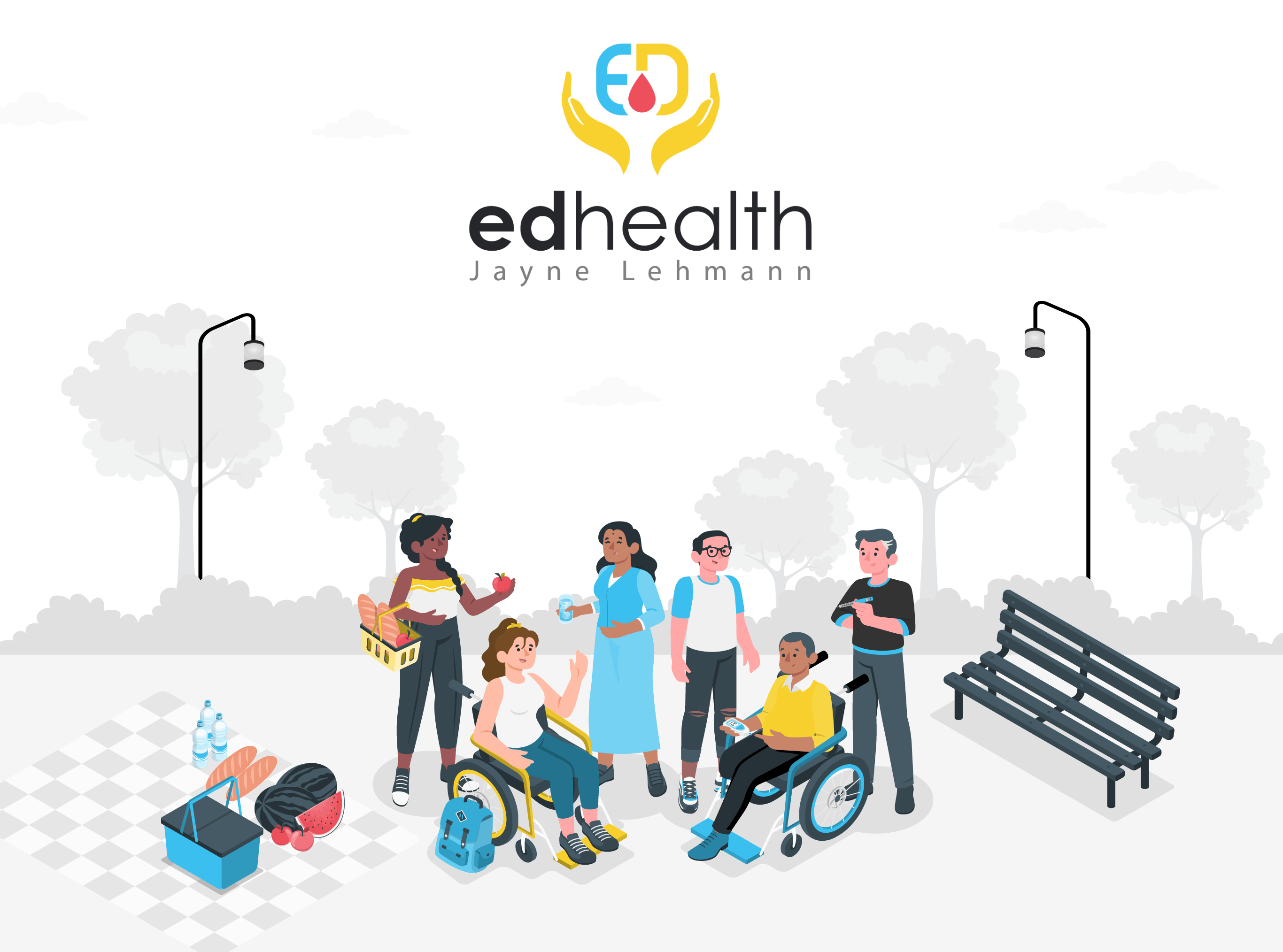Australia ratified the United Nations Convention on the Rights of Persons with Disability on 17th July, 2008. Even though we signed onto the UN Convention 15 years ago it is a sad reality that Australians with an intellectual disability die twenty to thirty-two years earlier than people without this disability. EdHealth believes that’s not good enough and it is time to get serious about improving the way we work with people with intellectual disability around their health.
Click! to read the report to the Disability Royal Commission Report on Australia’s performance upholding the UN Convention on the Rights of Persons with Disability.
Each day in our work with people with intellectual, cognitive and psycho-social disability, we see first-hand why they experience poorer health and for many, much shorter lives. There will often be a combination of issues creating barriers to good healthcare but in essence …
“Health doesn’t understand disability and
Jayne Lehmann, Director EdHealth
disability doesn’t understand health.“
We focus on getting people actively involved in their diabetes care, like they would if they did not have their disability. We turn barriers into opportunities to access and put in place person centred diabetes support. Strategies are customised for the person, their support workers and other people in their circle of support. Decrease the impact of their disability and they have the opportunity to be actively involved in their own diabetes care. Make the most of the way the support workers provide their support and better and more effective interactions with their health professionals are achieved.
EdHealth is all about improving diabetes support for people with a disability, enabling them to live a healthier and longer life doing the things they love.
National Disability Insurance Scheme
The National Disability Insurance Scheme (NDIS) provides Australians with a disability with funds to buy supports to build their capacity to address the areas of their life affected by their disability. The building of a person’s capacity is a significant goal of the NDIS. As services like EdHealth create new and effective models of support for people with a disability, they too need to build their capacity to offer their services to the growing number of people wanting to use them.
EdHealth is in the middle of a period of growth. Administration support increased our capacity to work with more NDIS participants across Australia. Jayne continues to push the standard of diabetes support for people with a disability significantly higher using her diabetes and disability lived experience to pioneer a model of service delivery focused on the disability side of diabetes care. To further improve EdHealth’s capacity Jayne is aware of the need to create a way for us to recruit Registered Nurses and Credentialled Diabetes Educators with the right skillset and attitudes to work with EdHealth to deliver services to the same standard Jayne has achieved through further capacity building.
People with intellectual disability are 2-3 times more likely to develop diabetes. As news spreads of the Diabetes 4 Disability training and linked services, the number of people seeking our input grows. Combining 35 years of diabetes care and education expertise with 26 years of lived experience caring for her daughter, who had an intellectual disability, Jayne has developed an enviable skillset to create and deliver innovative solutions for people whose health needs are often forgotten.

Many support workers helped Jayne and her family to support Sarah across her twenty-six years, which brought with it opportunities to deeply understand the support worker skillset and consider if there were opportunities to extend their scope of practice to provide diabetes support for people to do the things, they are unable to do, because of their disability.
Advocacy
Jayne’s advocacy started as a way to achieve change as her daughter, Sarah, grew up. Along the way it was obvious there were significant issues linked with the, at times, dysfunctional intersect between health and disability services. Jayne brings insights from the coalface of the intersect between disability and health support to challenge people with the power to make change, to consider the impact their inadequate policy, poorly designed and non-inclusive systems are having on the lives of people with intellectual disability. These insights often lead to positive steps in addressing the inequity people with intellectual disability face in all aspects of their lives.
“We need to address the health challenges people with intellectual disability and diabetes experience if they are to live longer, healthier and more inclusive lives“
Jayne considers both the health and disability support sides of the health equation for people with an intellectual disability and her suggestions frequently lead to improvements within systems and for individuals. Jayne was a contributor to the 2019 COVID 19 emergency response plan for people with intellectual disability in Australia. She is also a member of the Roadmap Implementation Governance Group advising on the implementation of the Roadmap Improving the Health of People with Intellectual disability
NDSS resources for people with intellectual disability

To hear Jayne talk about the NDSS resources for people with intellectual disability and diabetes Click here! … go to the 35 minute mark for the beginning of the interview by Peter Greco on Vision Australia Radio! EdHealth’s Diabetes 4 Disability (D4D) App has a link to all of the NDSS resources for people with intellectual disability. Tap the ‘More’ tab and scroll down to ‘NDSS Resources.’
Unique solutions

Jayne’s creativity, solid education skills and experience using picture communication systems (PCS) to support her daughter’s communication and positive behaviour support underpin the Diabetes 4 Disability training, support strategies and resources. EdHealth’s person centred strategies have included making the clinic room a welcoming space for people with intellectual disability who are frequently forgotten during appointments when they cannot talk.
Jayne said, “It’s important for clients to feel connected with their health professional. Engaging them in the appointment lets me see how they can be more involved with their diabetes care.” The photo to the left shows how one of Jayne’s soft toys made this lady feel safer and connected during the appointment, despite not having any oral communication. That’s the sort of smile and eye contact we love to see in our appointments with people with disability during their health appointments!
Strategies used by Jayne in her appointments to engage people with intellectual disability with their diabetes have included:
- IKEA food toys
- colouring-in pages of healthy food,
- roll of paper, textas, pencils
- putting diabetes equipment with the other fun resources to de-sensitise the person to their impact
- drawing pictures to explain a desired action
- creating a social story using the picture communication system images.

